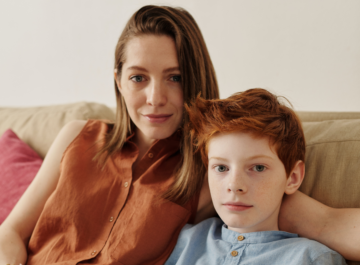[et_pb_section admin_label=”section”]
[et_pb_row admin_label=”row”]
[et_pb_column type=”4_4″][et_pb_text admin_label=”Text”]![]()
Women tech entrepreneurs changing the world
GITSG sat down for a coffee & a chat with Deepti Chopra, founder of Adaface.
 Adaface is Deepti’s tech baby that helps companies identify top candidates for all tech roles fast. Together with her co-founder, Deepti has created a friendly bot named Ada. Ada saves crucial engineering time by screening candidates with custom assessments for on-the-job skills.
Adaface is Deepti’s tech baby that helps companies identify top candidates for all tech roles fast. Together with her co-founder, Deepti has created a friendly bot named Ada. Ada saves crucial engineering time by screening candidates with custom assessments for on-the-job skills.
Deepti shares her early experiences as an entrepreneur – right from her learning’s at her first startup, Job-Hash, her curious stint at Pizza Hut, her good days & bad days at Adaface – and everything in between! Read on and you won’t need your daily shot of caffeine, as Deepti’s go-getter attitude & stories are enough to energize and are stronger than your morning cuppa!
What inspired you to start Adaface?
I have always been attracted to the HR Tech space; I think it’s mostly because even though it’s a very “boring” space, it’s not always for young software engineers who want to make a difference. The impact you can make in HR tech is huge. People spend most of their life at work, and if you can contribute in the smallest way to helping them find work that makes them feel like its relevant, important & that they’re contributing in some way – you can’t beat that!
Why the name “Ada”?
The name Ada was given by my co-founder, and it comes from Ada Lovelace who was considered the world’s first computer programmer. She theorized a lot of methods that modern computers use, which is why we thought the name Ada would be apt.
How has an apparent failure set you up for later success? Or do you have a favourite failure?
It’s always a tricky thing! Everybody tries to glamourize failure now because that’s the thing to do. Sometimes failure is just failure & that’s what it was. When I was working on my first startup – Job-Hash, there was a huge opportunity cost to it as well, but that being said there were a few learnings. A lot of the decisions that we are making at Adaface today come from those learnings. Just small things like-
- Don’t give away the product for free.
- Knowing the importance of having a co-founder.
- When I was at Job-Hash I didn’t have a full-time co-founder.
- Focusing on the product & sales, as opposed to focusing too much on the tech.
- You’re not building a research project; you’re building a company!
I was just out of college when I started Job-Hash, so it’s very easy to just sit in a room, keep writing code and keep overthinking algorithms but that’s not really what helps. Sometimes you just learn the hard way!
If you had to give a fresh college graduate who is about to start their career or entrepreneurial path any advice, what would it be?
A lot of people feel like they’re stuck in the wrong job or with the wrong major, and they may feel like it’s going to be like that forever. Most people don’t realize they have the power to change that. If there is anything you want to do, you can do it. Of course, there are some exceptions – [jokes]
If you’re as short as me then it’s a bit hard for me to get into the NBA. But almost everything else is very achievable, given a bit of time.
When you feel challenged or have a bad day as an entrepreneur, what do you do to get back on your feet?
It depends on how bad it is! Sometimes it’s just “normal-bad” and you can fix it by taking a short walk or talking on the phone for a bit. As an entrepreneur, the advice you get is to always put on a brave face, that you have to keep doing things irrespective of the rejections you are facing no matter how bad things get. But sometimes it can get really bad, and this works for me – some day’s you just need to pack up, go home and shut off your brain. Maybe it’s just Netflix, and then you come back tomorrow morning to fix whatever needs to be fixed. You just need to evaluate how bad it is.
“Having a co-founder also really helps! Both of you can share how terrible it is and then it feels much more okay!”
In the last 3 years, is there any habit, new belief or behavior that has improved your daily life?
One of the things over the last few months would be just worrying a bit less! Taking it one day at a time. In the very early days of Adaface I would wake up with panic attacks every day – I used to worry about random things like customers churning, servers going down, just about anything. I’ve stopped worrying so much & just knowing that you’re going to be fine helps a lot! My approach to a lot of things I do in life is – “what’s the worst that could happen?”
You’ve been a co-founder at Job-Hash, worked at Pizza Hut & now are a co-founder at Adaface. If you had to summarize one key take away & learning from each experience- what would it be?
Job-Hash: Learning that if you stick to your comfort zone, you can achieve almost nothing.
Pizza Hut: This was something I just did out of a whim, I was curious about it. As a kid growing up in India it was just another world & I come from a very protected family where you are always safe. So I just wanted to try it out & that was pretty much it. There was no grand scheme. A small part of this was getting out of my comfort zone but a bigger part of this was just curiosity.
PS: It’s a huge conversation starter, just try something that other people haven’t. It gives you an interesting experience to share. Adaface: Right now I’m just trying to live one day at a time. You have to have a long-term plan, but worry in the short term.
In your experience with Adaface so far, could you share the highest high?
You can spend months building a product that nobody wants, it’s better to just go out and sell 15 different things to see what people buy & then just go build that.
There have been high points, but it’s more like when you are working towards the high point & once the high point comes it doesn’t feel that high anymore! There were a few things, like the first sale we made was very special because we just had an idea and we didn’t have any product, and we just thought it is something we should try and sell and see if anybody buys it – then we will build it. You can spend months building a product that nobody wants, it’s better to just go out and sell 15 different things to see what people buy & then just go build that. This is another thing I didn’t know during Job-Hash- so I spent months building a product that I didn’t end up selling to as many customers, and that’s another learning from Job-Hash.
Do you have any tips or food for thought for other girls in tech out there?
You can make anything that you want to see happen, happen. As long as you put focused efforts.
Sometimes you just spend days worrying about how you are going to get out of a job or switch careers – it’s better to either find somebody else who has done it & work with them to see how you can do that as well. There’s no dearth of inspiration if you go out looking for it, there are so many resources online. Sometimes you just need to do it instead of worrying about it. It is going to take time, you are not going to learn how to code in 1 day, and you are going to have to spend 3-6 months to a year – just an example. Anything you want to do takes time, but in the grand scheme of things over a 50-year career it’s better to spend 1 year to try and make that switch as opposed to being stuck with a job or a degree you don’t want![/et_pb_text][/et_pb_column]
[/et_pb_row]
[/et_pb_section]



